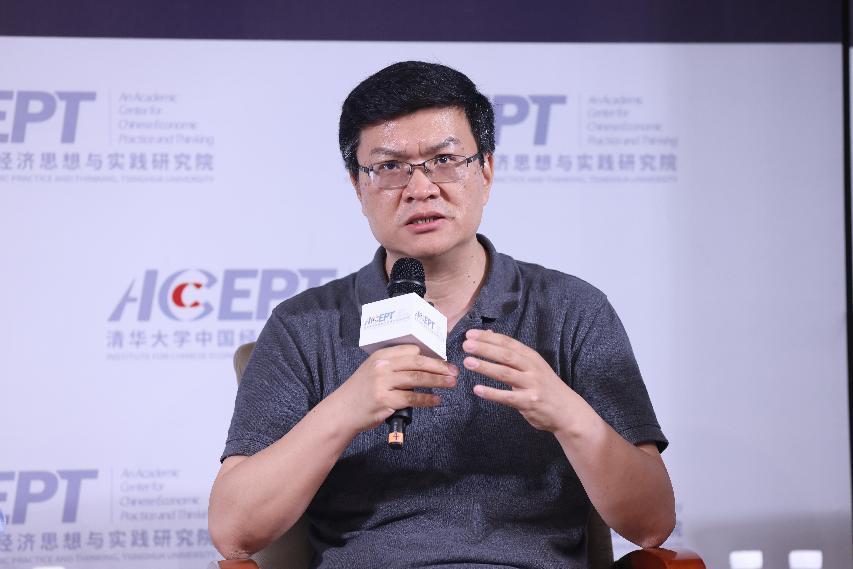Da Wei: U.S. showing strong economic performance but doubts raised as to whether momentum can be sustained
The following is a summary of Da Wei's comments during a roundtable discussion at the 47th Tsinghua University Forum of China and the World Economy held at Tsinghua University, Beijing, on July 6, 2024. Da is Director of the Center for International Security and Strategy (CISS) and Professor in the Department of International Relations at Tsinghua University's School of Social Sciences.
On July 6, 2024, the 47th Tsinghua University Forum of China and the World Economy, hosted by Tsinghua University's Academic Center for Chinese Economic Practice and Thinking (ACCEPT) in partnership with the School of Economics and Management Alumni Center, was held on campus. Director of the Center for International Security and Strategy (CISS) and Professor in the Department of International Relations at Tsinghua University's School of Social Sciences, Da Wei, participated in a roundtable discussion at the forum alongside other distinguished guests where he discussed the impact of China-U.S. relations on each country's respective economic performance.

On July 6, 2024, the 47th Tsinghua University Forum of China and the World Economy was held inside the Weilun Building's main lecture hall on campus at Tsinghua University's School of Economics and Management. The biannual event was hosted by Tsinghua University's Academic Center for Chinese Economic Practice and Thinking (ACCEPT) under the theme of China's 2024 Mid-Year Economic Update. During the forum's proceedings, Da Wei, Director of the Center for International Security and Strategy (CISS) and Professor in the Department of International Relations at Tsinghua University's School of Social Sciences participated in a roundtable discussion alongside other distinguished guests where he discussed the impact of China-U.S. relations on each country's respective economic performance.
Da Wei expressed that the current international environment is highly uncertain, with the policy direction of the United States being especially difficult to predict. According to available data, the current state of the economy and technological development in the U.S. looks promising, but whether this situation can be sustained is another question. The rest of the world meanwhile considers China's economic forecast to be comparatively poor, which has since become the consensus view. This not only affects foreign investment coming into China, but also affects foreign students' willingness to select China to pursue studies abroad. He stressed that the great game between China and the U.S. does not only revolve around the size of each country's overall economies, but involves competition in the high-tech and military sectors, among many other areas. He pointed out that even if China's economy becomes twice the size of the U.S. economy, so long as the Americans are willing to do so, they can stir up trouble and create a situation in which China is subjected to enormous challenges. In order to effectively boost confidence in the domestic market, Da suggested that the government should enhance market morale through clear political signals and a stable legal system. At the same time, he stressed the need to avoid excessive intervention in private enterprises while protecting their legitimate rights and interests in order to maintain the vitality of China's economy. He noted that policy transparency and stability are crucial factors for maintaining market confidence, which means that governments must set a clear policy direction and ensure its continuity.




